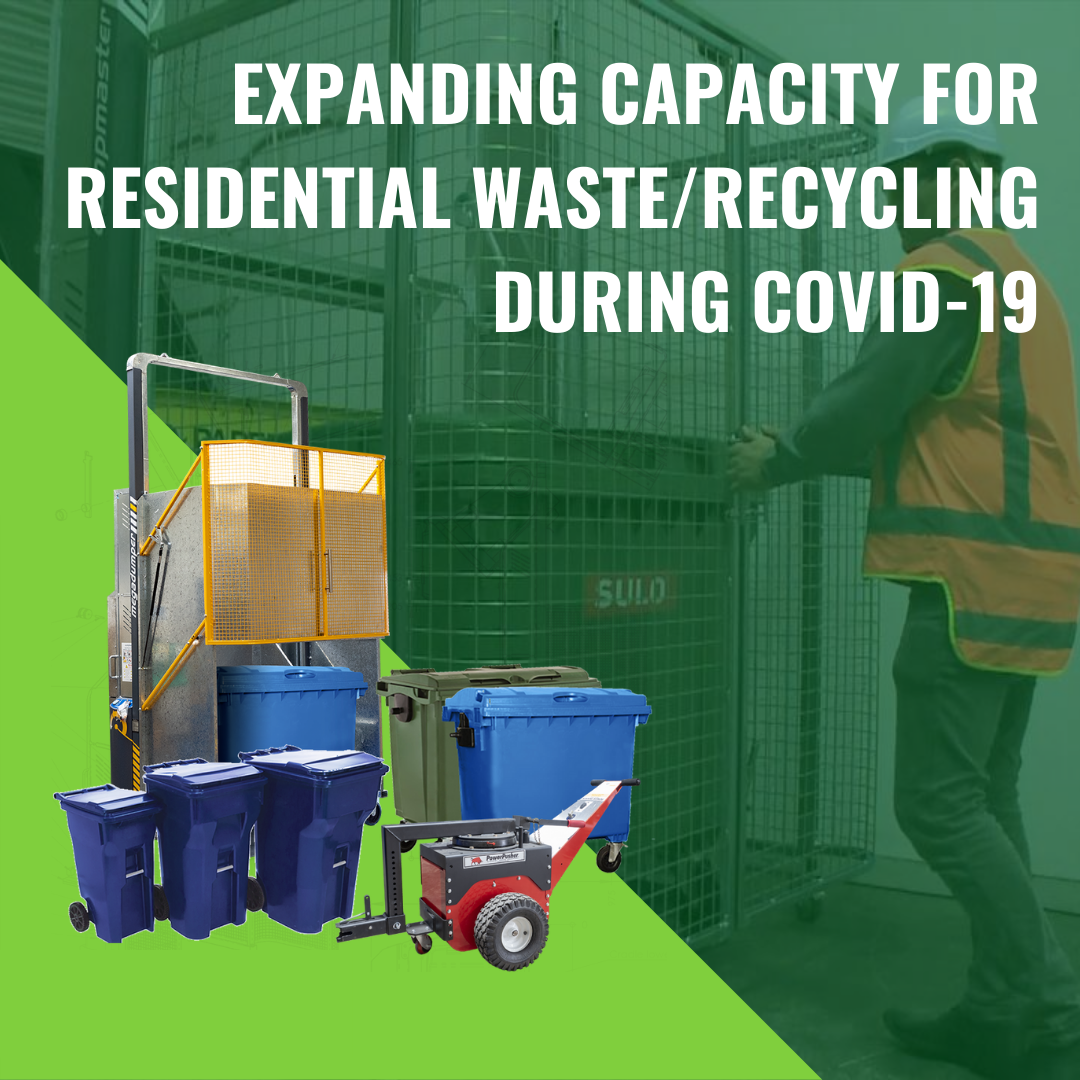We use cookies to make your experience better. To comply with the new e-Privacy directive, we need to ask for your consent to set the cookies. Learn more.
Expanding Capacity for Residential Waste/Recycling During COVID-19
Before the 2020 coronavirus pandemic, about a quarter of U.S. workers worked from home at least some of the time. By the time COVID 19 reached the United States in March 2020, a full 40 percent of surveyed adults said they were forced into home offices.

Those workers’ children also began spending more time at home; by March 17, nearly 500 school districts had shut down in-person classes. This massive shift away from shared facilities to individual homes has dramatic implications for residential waste and recycling processors.
In short, spending more time at home means generating more waste at home — and many Americans are spending more time at home as they try to slow the virus’ spread by avoiding gatherings. Meanwhile, residents are stocking up on supplies, creating more packaging and post-use waste.
These forces led one nationwide waste hauler to estimate that residential waste will grow 30 percent by volume during the pandemic. If you’re a residential landfill or MRF operator, is your company prepared to handle 30 percent more material, especially while observing PPE and social distancing safety protocols of your own?
Here are a few ways to expand waste-handing capacity during this challenging time.
- To safely keep drop-off recycling facilities open, ask visitors to wear masks and observe six feet of distance at all times during their deposit. Asking residents to drop off large recycling loads can ease some of the stress on haulers — but unless these facilities are safe, city reopening plans may force them to close. Use clear signage like Social Distancing Sticker Kits in all public areas of the drop-off facility, and forbid entry to visitors who fail to wear masks.
- Provide mobile material-handling equipment to transport and dump overflow from the main sorting line. A combination of hydraulic Bin Dumpers and Mobile Garbage Bins can take some of the stress off of sorting lines by temporarily storing loads in a designated area. Each Bin Dumper allows a single employee to safely lift and empty full bins, adding additional handling capacity to the facility without extra teams or two-person lifts.
- Use the Turnkey Waste Handling Solution to handle extra loads of materials. The Turnkey Waste Handling Solution from Solus Group is an equipment bundle that provides a complete handling system for bulk loads of waste and recycling materials. It includes Mobile Garbage Bins with tow hitches and a rolling Dumpmaster Bin Dumper, allowing users to create waste-handling trains with an existing electric tugger or a Nu-Star Power Pusher from Solus Group. A Megadumper Cart Dumper at the final dumping site completes the package. These trains give a single staff member the power to pick up multiple bulk waste loads, transport them throughout the facility, and dump them into sorting lines or storage bins, shift after shift, without any manual lifting.
- In extreme cases, it may be necessary to seek permission to dispose of some recycling loads in the landfill. Clearly, disposing of recyclable materials is an option of last resort — but the COVID-19 pandemic leaves some MRFs with few better choices. Contamination in the Indianapolis region increased by 41 percent between March and the end of May, perhaps due to residents producing more trash than their designated bins could handle, leading them to place overflow in recycling containers. The combination of increasing contamination and shuttered processors may leave MRFs with no choice but to temporarily dispose of certain loads.
Some waste processors are slowing down their lines and adding extra staff to account for increased contamination. Others are suspending bulk waste pickup or limiting drop-off hours. A combination of all these strategies — along with an influx of ergonomic material handling equipment — can help MRFs deal with the residential waste-handling challenges associated with the 2020 pandemic.
